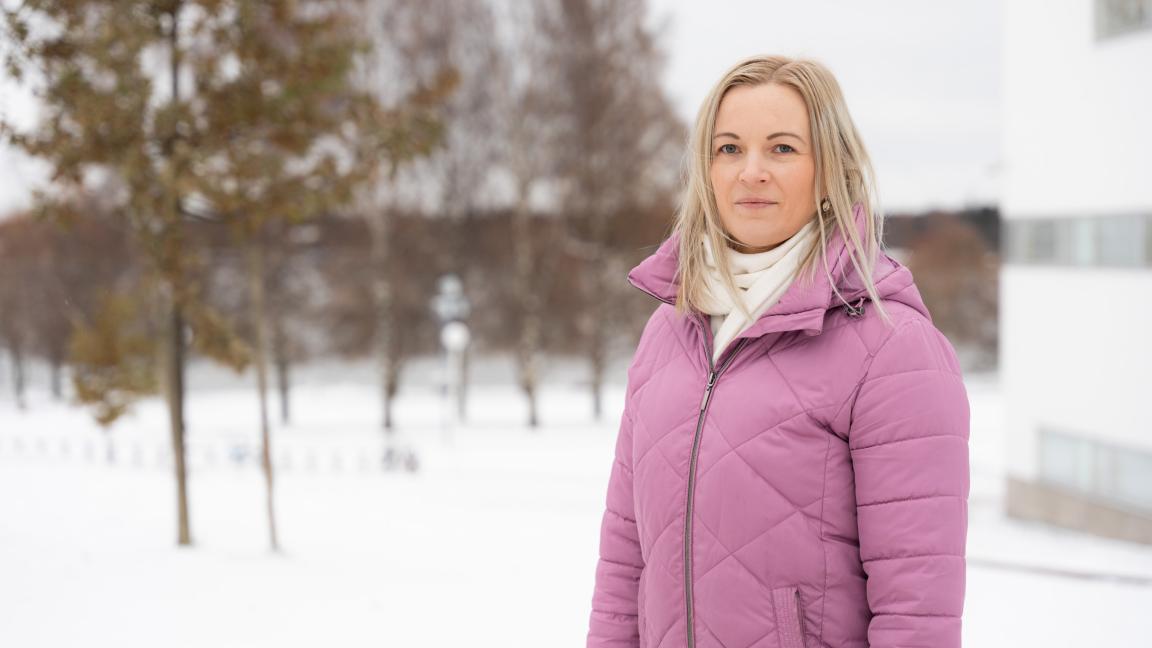Susanna Kujala’s doctoral dissertation sheds light on the connection between the sustainability transition of food systems and the characteristics of the regions in question. This research helps clarify regional differences in sustainable practices, such as use of local food and organic farming, which is also useful in promoting sustainability.
– The use of local food in public kitchens and the proportion of the organic area on arable land both vary significantly from region to region. These regional differences are extensively due to the distinct characteristics and resources of regions. The functioning of the food system and its change are affected not only by producers and consumers but also by the economic, political and natural environment of the region, says Susanna Kujala, who will defend her doctoral dissertation at the University of Vaasa on 1 December.
According to Kujala, regional food systems are also influenced by national and supranational actions, policies and decisions.
– Other systems also affect food systems through various financial and other connections. For example, the increase in different bioenergy solutions also offers opportunities for farms.
Regional disparities also reflect on economic impacts of sustainability changes
The results show that the impact of the sustainability transition of food systems can diversify regional economies and promote their growth. Regional differences are also visible in the extent of the economic impact of the sustainability transition in the region. For example, the economic structure and size of the region influence how strongly and extensively the change affects the region.
– The impact of changes in consumption habits or production methods that are linked to the sustainability of food systems affect several different sectors beyond the food chain and, on the other hand, are also reflected beyond the region. This is due, among other things, to the connections and dependencies between sectors and regions, says Kujala.
A change in the sustainability of the food system can, therefore, help to diversify the production structure of the region. An increase in the use of local food, a more extensive renewal of the entire operating model or any change in the food system will affect the regional economy not only directly but also indirectly through various economic connections.
Promotion of sustainability requires cooperation
One of the most essential things in promoting the sustainability of food systems is cooperation between different operators and pursuing the same goals. Promoting the sustainability of the food system requires changing the operations of both the food system and the various operators behind it. It is not enough for food producers and processors to make changes to achieve sustainability; the input of a wider range of operators is needed.
In her doctoral dissertation, Susanna Kujala focuses on the use of local food, organic farming and the agroecological symbiosis model to study how the distinct characteristics and resources of regions affect the sustainability transition of food systems and how the sustainability transition of food systems affects regional economies. The dissertation utilises systems thinking and several methods and materials, such as qualitative comparative analysis, computable general equilibrium modelling, surveys, statistics, and literature.
Doctoral dissertation
Kujala, Susanna (2023). Ruokajärjestelmän kestävyyssiirtymä ja alueet keskinäisriippuvuuden maailmassa. Acta Wasaensia 522. Doctoral dissertation. University of Vaasa / Vaasan yliopisto.
Public defence
The public examination of M.Sc. Susanna Kujala’s doctoral dissertation “Ruokajärjestelmien kestävyyssiirtymä ja alueet keskinäisriippuvuuksien maailmassa” will be held on Friday 1 December 2023 at noon at the University of Vaasa, Auditorium Nissi.
Professor Teemu Makkonen (University of Eastern Finland) will act as opponent and Professor emeritus Seija Virkkala as custos. The defence will be held in Finnish.
Further information
Susanna Kujala, tel. +358 50 415 1158, email susanna.kujala (@) helsinki.fi
Susanna Kujala was born in Vaasa. She graduated from Laihian lukio upper secondary school in 2003 and obtained a master’s degree in regional studies at the University of Vaasa in 2009. She has conducted assessments of the regional economic impacts of various activities and changes at the Ruralia Institute of the University of Helsinki since 2010.
